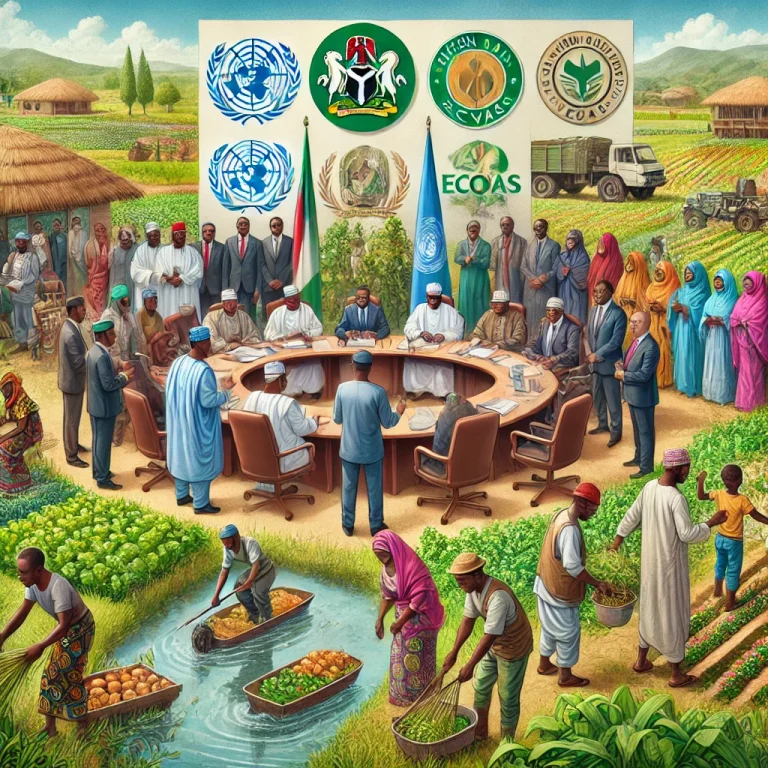Nigeria has finalized a nationwide consultation process to revise its National Gender Policy in Agriculture, marking a critical step toward a new framework aimed at closing gender gaps in the sector and strengthening national food security.
The review, led by ActionAid Nigeria in collaboration with the Federal Ministry of Agriculture and Rural Development, was supported by development partners including the Alliance for a Green Revolution in Africa (AGRA), the German Development Agency (GIZ), and CARE International.
The final zonal review for the Northeast was held on Tuesday in Gombe, concluding a process that engaged all six geopolitical zones since July. A national validation session is scheduled for October 20 in Abuja, after which the policy will be presented to the Federal Executive Council (FEC) and the National Council on Agriculture for adoption.
According to the review team, the 2025–2030 policy aims to directly address barriers that limit the productivity of women, youth, and persons with disabilities in agriculture.
Speaking during the meeting, Blessing Akhile, Food and Agriculture Programme Adviser at ActionAid Nigeria, said the forum provided a vital opportunity to ensure that the voices of smallholder women farmers, young people, and persons with disabilities are meaningfully reflected in shaping a more inclusive and equitable food system.
‘With the insights and commitment of everyone here, I am confident that this review process will deliver a stronger, more inclusive policy that responds to the needs of vulnerable groups, while enhancing fair participation in agriculture for inclusive food systems and national development,” she said.
Meanwhile, Esther Ibrahim, AGRA’s representative, emphasized the organization’s commitment to gender equity in agriculture.
“For us at AGRA, we know gender is critical for food systems transformation. Just recently in September, AGRA hosted the African Food Systems event in Dakar, where the focus was on youth. You can see how important this is for us. Our role is to ensure that the policy is implemented in the states where we work so that everyone is carried along,” she noted.
Despite being the nation’s largest employer, Nigeria’s agricultural sector continues to face persistent challenges such as unequal access to land, financing, and markets—disadvantages that disproportionately affect women.
However, Nkiruka Stella Okonkwo, National Consultant for the policy review, assured that the revised policy seeks to strengthen agricultural value chains and create more equitable opportunities for marginalized groups.
“Now in 2025, we are reviewing the gender policy to ensure it reflects the current realities of Nigerian stakeholders in agriculture and that no group is left behind. The revised version focuses on four categories: men in agriculture, women in agriculture, young people, and persons with disabilities.
Most policies fail because of top-down approaches. This time, we adopted consultations, surveys, and participation by farmers and persons with disabilities. Commissioners have been part of the process from the start, so that when implementation begins, we avoid mistakes,” she explained.
Speaking on behalf of the Federal Ministry of Agriculture, Mrs. Kachallah Zara Damatru reaffirmed the government’s commitment to inclusive agricultural development.
“We recognize the critical role agriculture plays in driving economic growth, food security, and poverty reduction in Nigeria. We also acknowledge the disproportionate challenges faced by women and other marginalized groups in accessing resources, opportunities, and decision-making processes in agriculture,” she said.
“Your participation and contributions are invaluable to the success of this forum. Your expertise, perspectives, and experiences will shape the future of the gender policy in agriculture, ensuring that our efforts are inclusive, effective, and sustainable.”
With the zonal consultations now completed, the Gombe State Commissioner for Agriculture, Animal Husbandry and Cooperatives, Dr. Barnabas Malle, expressed optimism that the revised policy would reshape Nigeria’s food systems and deliver tangible benefits both locally and nationally.
“The new policy will complement the efforts of the Gombe State Government. Once finalized, it will be domesticated and implemented in Gombe State,” he assured.


